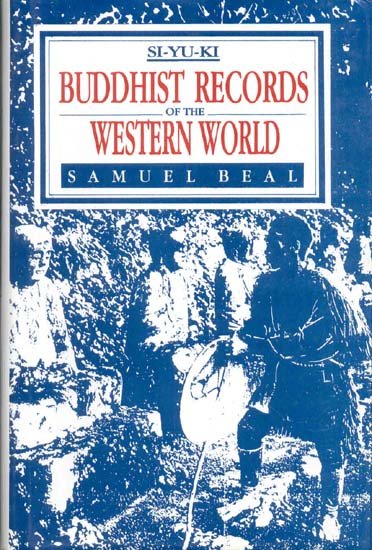Buddhist records of the Western world (Xuanzang)
by Samuel Beal | 1884 | 224,928 words | ISBN-10: 8120811070
This is the English translation of the travel records of Xuanzang (or, Hiuen Tsiang): a Chinese Buddhist monk who traveled to India during the seventh century. This book recounts his documents his visit to India and neighboring countries, and reflects the condition of those countries during his time, including temples, culture, traditions and fest...
Chapter 10 - Buddhist Schools Of India, Books, Discussions, Discipline
The different schools are constantly at variance, and their contending utterances rise like the angry waves of the sea. The different sects have their separate masters, and in various directions aim at one end.
There are Eighteen schools, each claiming pre-eminence. The partisans of the Great and Little Vehicle are content to dwell apart. There are some who give themselves up to quiet contemplation, and devote themselves, whether walking or standing still or sitting down, to the acquirement of wisdom and insight; others, on the contrary, differ from these in raising noisy contentions about their faith. According to their fraternity, they are governed by distinctive rules and regulations, which we need not name.
The Vinaya (liu), discourses (lun), sūtras (king), are equally Buddhist books. He who can entirely explain one class of these books is exempted from the control of the karmadāna. If he can explain two classes, he receives in addition the equipments of an upper seat (room); he who can explain three classes has allotted to him different servants to attend to and obey him; he who can explain four classes has "pure men" (upāsakas) allotted to him as attendants; he who can explain five classes of books is then allowed an elephant carriage; he who can explain six classes of books is allowed a surrounding escort. When a man's renown has reached to a high distinction, then at different times he convokes an assembly for discussion. He judges of the superior or inferior talent of those who take part in it; he distinguishes their good or bad points; he praises the clever and reproves the faulty; if one of the assembly distinguishes himself by refined language, subtle investigation, deep penetration, and severe logic, then he is mounted on an elephant covered with precious ornaments, and conducted by a numerous suite to the gates of the convent.
If, on the contrary, one of the members breaks down in his argument, or uses poor and inelegant phrases, or if he violates a rule in logic and adapts his words accordingly, they proceed to disfigure his face with red and white, and cover his body with dirt and dust, and then carry him off to some deserted spot or leave him in a ditch. Thus they distinguish between the meritorious and the worthless, between the wise and the foolish.
The pursuit of pleasure belongs to a worldly life, to follow knowledge to a religious life; to return to a worldly life from one of religion is considered blameworthy. If one breaks the rules of discipline, the transgressor is publicly reproved: for a slight fault a reprimand is given or a temporary banishment (enforced silence); for a grave fault expulsion is enforced. Those who are thus expelled for life go out to seek some dwelling-place, or, finding no place of refuge, wander about the roads; sometimes they go back to their old occupation (resume lay life).
